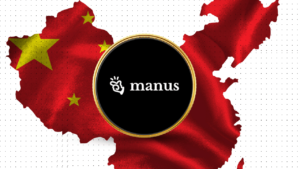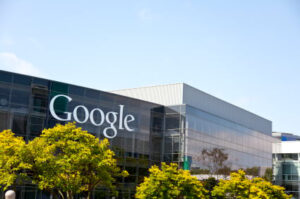Google Cloud Achieves Profitability for Second Consecutive Year; Manus AI Secures Funding; Uber and Volkswagen Initiate Robotaxi Initiative

Recent Developments in Tech and Business
Google Cloud Profitable and Advancements in AI
Google Cloud has reported profitability for the second consecutive year, showcasing its growth amidst increasing competition in the tech industry. Notably, the rollout of Gemini 2.5 marks Google’s commitment to scaling its artificial intelligence (AI) capabilities. This strategic move may enhance Google’s position in the rapidly evolving landscape of AI technologies.
Valuation of Chrome by DuckDuckGo CEO
During recent antitrust court hearings in the U.S., Gabriel Weinberg, CEO of DuckDuckGo, estimated the value of Google’s Chrome browser at approximately $50 billion. This estimation stands in light of potential forced resale scenarios by Google. Other companies, including OpenAI, Perplexity, and Yahoo!, have expressed interest in acquiring Chrome, indicating its significant market presence and potential future value.
Tesla’s Decline and Musk’s Response
Elon Musk has announced a partial retreat from the “Department of Government Efficiency.” This decision comes after Tesla faced a valuation drop of $800 billion and a staggering 70% decline in its Q1 profits. Musk’s alignment with political figures like Donald Trump to boost his industrial interests has faced backlash, leading to reduced consumer confidence and strained diplomatic relations with China, a crucial market for Tesla. As a response to investor pressure, Musk aims to concentrate on core business activities, especially following Tesla’s fall from the top position in the electric vehicle market, now held by the Chinese company BYD.
Manus AI Secures Funding to Compete in the AI Sector
Manus AI, a startup emerging from the Butterfly Effect group in China, secured $75 million in funding from Benchmark and other notable investors, bringing its total funding to nearly $500 million. The company aims to enhance the international deployment of its autonomous AI agents, which are designed to perform tasks like sorting resumes, planning trips, and conducting analyses. Launched in March, Manus AI claims to outperform established competitors, such as OpenAI’s Deep Research, in specific applications. This development raises questions about American dominance in the strategic AI sector.
Intel’s Financial Landscape and Strategic Cuts
In the first quarter of 2025, Intel reported stable revenues of $12.7 billion; however, they also posted a GAAP net loss of $821 million due to declining profit margins. The company’s gross margin fell to 36.9%. In response, Intel announced plans to reduce its operating expenses from an anticipated $17.5 billion to $17 billion by streamlining management and refocusing on its core activities. Despite a slight increase in sales in the Data Center & AI division by 8%, there was an 8% decrease in consumer processor sales. Intel retains its commitment to advancing its foundry operations and plans to introduce a new generation of chips by the end of 2025.
Uber and Volkswagen’s Robotaxi Initiative
Uber and Volkswagen have established a partnership to launch an autonomous electric Robotaxi service across several U.S. cities by 2035. The initial fleet of this service, based on Volkswagen’s ID model, is set to debut in Los Angeles by the end of 2026, initially featuring a human operator before transitioning to full autonomy by 2027. This initiative draws on technology from Mobileye and aims to enhance urban mobility through sustainable transportation options.
Inspiring Innovations and Entrepreneurial Support
Fundraising Efforts
- Manus AI is making headlines by securing significant funding in the competitive AI landscape.
- Didomi, another startup, raised €72 million to strengthen its position in the evolving data market.
Engagements in Educational and Health Sectors
A notable innovation includes Poppins, a medical video game designed for children with dyslexia, which has also secured €5 million in funding.
Events Highlighting Innovation
The upcoming Paris-Saclay Spring event will gather leading innovators at the Polytechnic Institute’s campus in Palaiseau, which is recognized as Europe’s foremost Deeptech cluster. This event offers an opportunity for entrepreneurs and stakeholders to collaborate and create impactful technologies.
Recent Issues in French Tech
Several concerns are highlighted regarding the challenges facing French startups, mentioning limitations related to the investor-driven model. This perspective calls into question the sustainability of the French tech ecosystem and its ability to compete on an international scale.
These updates reflect the dynamic nature of the technology sector, where companies are constantly adapting to change, competitive pressures, and evolving consumer demands.






